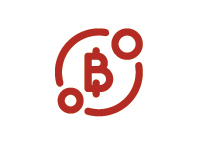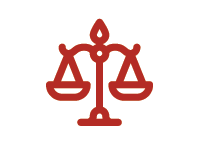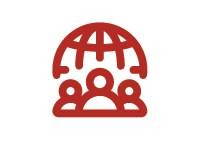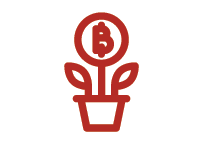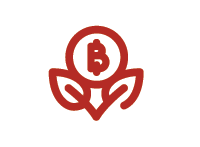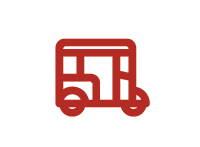Thailand Board of Investment
The BOI (Board of Investment) is a governmental agency of Thailand which promotes investment activities in Thailand. It offers investment information and other services to investors together with many incentives.
In order to have working privilege under the Thailand Board of Investment Thailand (BOI), foreign experts and skilled workers have to follow the Investment Promotion Act 1977 and there are 2 sections to be considered. Section 24 is the permission to foreign nationals for entry into the Kingdom for the purpose of studying investment opportunities or performing any other act benefiting investment.
The total value of investment applications received by the Thailand Board of Investment (BOI) for the full year 2019 reached 756.1 billion baht (about USD25 billion), above the 750 billion baht target, while the number of projects submitted increased 7% from a year earlier to 1,624 projects, as Deputy Prime Minister Somkid Jatusripitak told reporters (as per press release by BOI)
The Thailand Board of Investment Thailand (BOI) is in charge of executing the Thai government arrangements for advancing certain businesses in Thailand considered helpful to the Thai business and economy. Thai BOI helps Thais and outside financial specialists to begin and direct organizations in attractive zones of monetary exercises by offering an arrangement of incentives.
Tax Incentives
A BOI advanced organization in Thailand might be qualified to get a reduction or exemption of import duties obligations and may likewise be qualified to be exempted from a juristic individual’s assessment and profits, and additionally, twofold reasoning’s from the expense of transportation, power, water and task’s foundation establishment.
- Reductions or exemptions from import duties on machinery;
- Lessening of import obligations for crude or key materials;
- Exclusions from corporate wage assessment and profits;
- A 50% decrease in corporate salary charge;
- Twofold derivations for transportation, power and water supply costs;
- Additionally 25 percent deduction on expenses for construction or installation of facilities
- Exemptions on import duties on essential or raw materials used in production for export purposes.
Non-Tax Incentives
Local and outside organizations promoted by the Thai BOI are qualified to enlist foreign skilled experts and workers. Further, the BOI accommodates express non-worker visa and work grant handling through “One-stop Visa”. Non-tax impetuses may likewise allow outside freehold land ownership to organizations required in industrial projects. Non-tax incentives include:
- Authorization for foreign nationals to enter Thailand with the end goal of contemplating venture opportunities;
- Authorization to bring skilled experts and workers to Thailand to work in venture promoted exercises;
- Authorization to claim land; and
- Authorization to send cash from Thailand in foreign currency.
Setting Up a Thai BOI Promoted Company
Investors looking for businesses in Thailand can apply for BOI promotion. The BOI classifies industries into types and offers application forms that are specific to each industry. Usually, businesses that are given priority for BOI licensing are mainly involved in innovation and technology, export and manufacturing and other investments displaying possible business growth. Non-industrial industries such as movie productions and nursing homes for the aged are also endorsed by BOI with investment inducements.
Download the BOI introduction and the BOI guide for doing business in Thailand.
Startup in Thailand is an established business consulting firm assisting foreigners to do business in Thailand and can help you not only in providing Thailand BOI consulting but handhold you to complete the entire process of BOI certification and subsequent audits. Contact us to get a FREE consultation.
How are incentives ascribed by the BOI?
The sum and sorts of incentives that you may get will depend of how your investment matches the administrative objectives. If you are investing in an activity that is believed to be of priority and that in addition you would locate your investment in the north-east you might receive extreme benefits from the BOI.
Unexpectedly in the event that you put into a non-priority activity in Bangkok you will get the base or minimum advantages or incentives.
BOI promotion more prominent than foreign business permit
The clever thing is that the BOI is additionally an organization and that the managerial procedure imparts more than a couple of attributes to the foreign permit business process.
In spite of those normal characteristics, outside foreign investors see the BOI as an “entryway opener”. The BOI’s part is to draw in foreign investors and in this manner, foreign investors are managing an organization that invites them (with celebrity lane) and that will attempt to do its absolute best to help them to put resources into Thailand.
Actually, foreign investors see (all things considered) the authorities responsible for the foreign business permitting as the “dance club bouncer” which just part is to keep them outside. The FBA authorizing power is not here to draw in but rather to restrain foreign interest in controlled parts. This is the reason foreign investors are generally so enthusiastic to apply for a BOI advancement or to contribute inside an Industrial Business Park under the Industrial Estate Authority thus unwilling to apply for a foreign business license.
Common Tax Problems Faced by BOI Companies
A company in Thailand promoted by BOI though gets an opportunity of reduced import tax duties on both the raw materials as well as the machinery imported to the country, the revenue, and the customs department are the most into trouble. There are no strict records about materials imported and exported by the investors. For instance, a producer may important raw material for production purposes, perform the production process and export the final goods. There are no industries that use the entire imported raw material for production purposes. They are ultimately termed as wastes. These wastes are resold by the investors that result in the imported material under the relief from taxes and imports on duties. They do not realize that this grant is only for exported goods. Hence, when they are selling out the wastes in the local markets, they tend to save the tax amounts by not paying the import duties and taxes.
The problem is usually observed to be small but one does not realize how big the losses can be when one has a big factory reselling the wastes in the local markets. The revenue and customs department find out such false happenings within 2-3 years. When the wastes are highly valuable like precious stones and metals, one might not even realize in the present what it can cost them then.
The next problem analyzed by the BOI companies is that they tend to do more payments overseas and do not pay out the withholding taxes on some payments.
These BOI companies are found to be in trouble just because they are seen using a foreign finance director rather than a Thai finance director. This is because the foreign finance directors expect the French standard accounting systems which unfortunately do not match with the Thai standards. The differences can be seen in the payments recorded in the companies’ accounts as service payment and no withholding taxes whereas that payment has to be recorded along with a 15% withholding tax. The same problem is seen to have with some non-BOIs too.
The International Headquarters (IHQ) / Regional Operating Headquarters (ROH)
The international headquarters scheme was launched on January 1, 2015, under the auspices of BOI to replace the scheme of regional operating headquarters (ROH) from the perspective of BOI.
IHQ and ROH are two different strategies that are available as separate tax incentives if the conditions are fulfilled provided by the Thai revenue department. If the IHQ regime is enforced under the auspices of BOI, it will not revoke the availability of ROH scheme under tax purposes. The promotional approval of BOI incentives and conditions are all the same for both IHQ and ROH, with an exception that IHQ must supervise the associated enterprise or a foreign branch in at least one foreign country, whereas in the case of ROH, it must provide services in a minimum of 3 foreign countries. IHQ services also include treasury center activity. Additional services under this scheme are administrative and management services, technical and support services i.e., business planning and business coordination, startup consulting, research and development, marketing, sales promotion, training & development of human resources and corporate financial advisory services.
BOI groups IOH as B1 activity which has the privilege of exemption from import duty on machinery used for research, development as well as training purposes. Also, an exception can be availed on the import of raw materials. These tax incentives are available only if the entity gets itself registered in the revenue department as an IHQ. The ministry of finance has proposed various tax benefits such as the exemption from corporate income tax from foreign revenue and a 10% reduction in the taxes from the revenue generated in Thailand, approved by the cabinet. However, there is no royal decree issued on the incentives and opportunities given by the revenue department that is vital until they are effective.
As the IHQ scheme does not revoke the incentives and schemes provided under ROH, the companies who wish to apply for this scheme can consider fulfilling the conditions of the revenue department and apply for the ROH scheme.
ROH incentives include the following benefits
- 10% corporate income tax on the net profits from the provision of qualifying services to affiliates.
- 10% tax on the interest and royalties received from affiliates.
- Exemption of tax on dividend received from the local as well as foreign affiliates.
- Exemption of tax on dividend received by a company from ROH under the foreign law has no business operations present in Thailand.
- 25% allowance initially on the immovable property acquired by ROH for conducting research and development for the use of related parties depreciable in 20 years.
- 15% income tax on the personal income of the foreign employees from ROH for the initial 4 years.
- Exemption on income tax for the initial four years on the earnings generated by the overseas employees for working offshore for ROH. These payments are not borne by ROH or its Thailand subsidiary.
The following conditions must be fulfilled to qualify for ROH incentives
- The ROH must provide services to the branches or the associated enterprises in at least 3 different countries.
- The incomes generated from its foreign branches or the enterprises should be equal to at least 50% of the total income. The first 3 years of operations permit one-third of its total income.
- The registered paid-up capital shall be at least THB 10 million.
- The ROH must be incorporated.
Taxation and Investment in Thailand
The Thailand investment and taxation of companies are according to the Thai law registered as ROH under the conditions and procedures given by the revenue department director-general.
The ROH can also apply for investment from BOI. Once granted, the ROH gets the non-tax incentives which include permits to get expiates to the territory as skilled workers or as experts to work in the ROH. The ROH also received permits from owning land and remit money outward in the foreign currency. Coming to the tax-based benefits given by the BOI, ROH receives exemptions on import duty of machinery imported for research, development and training purposes.
Incentives for Small and Medium-sized Companies
The Small and medium-sized enterprises (SMEs) have received benefits from BOI with the intention of enhancing and strengthening them to allow them to engage more effectively on the international levels and also to encourage investment in the new investment promotion strategy 2015-21.
Under the new rules applied from January 1, 2015, there are various activities carried out by SMEs which get incentives and tax benefits. These include corporate income tax exemption for 2 to 8 years deepening on what kind of activity it is along with exemptions on import duty.
Applications can be made by these enterprises for merit-based incentives and other privileges. These applications must be made before December 31, 2017, and fulfill the minimum investment criteria of THB 500,000 per project. This investment excludes the land and working capital. They should hold ownership of at least 51% of the registered capital. The debt-equity ratio should not exceed 3:1. The net fixed assets or the investment size excluding the land and working capital should not exceed THB 200 million for all the promoted as well as the non-promoted activities.
The eligibility is for 8 incentives, with seven overall categories of activities that include 38 manufacturing & service activities are given as follows:
- Manufacturing of organic and biological fertilizers.
- Manufacturing of glass products and ceramic products.
- Manufacturing of musical devices.
- Manufacturing of metal products and parts.
- Manufacturing of rubber tires and vehicles.
- Manufacturing of electronic goods
- Manufacturing of pharmaceuticals
- Logistic service center operations
- Provision of motion pictures supporting services.
If the SMEs are seen to make an additional investment and incur additional expenditures which are for the benefit of the country and the industry, then the company can avail additional tax benefits for 1 to 3 years as per the situation. This investment and expenditure could be on research and development purposes, training purposes, developing advanced technology, innovations, etc.
Contact Startup in Thailand a startup consulting firm in Thailand that specializes in Thai laws.
Also check out the FAQ page for a quick overview of the critical factors to consider before starting a new business in Thailand.
Read more:
Thailand Startup Options,
Investment opportunities in Thailand,
Legal Assistance in Thailand
Why Thailand Is A Good Business Destination
Business in Thailand – How Different it is from Rest of the World
Thailand reforming itself for doing business easier in Thailand
Growth of Startups in Thailand and Future Outlook
What you should consider before doing business in SE Asia
A Challenging Baht for the Thai Economy in 2020
Take a FREE Online Consultation here or get essential tips by downloading this e-Book on how to Startup in Thailand


